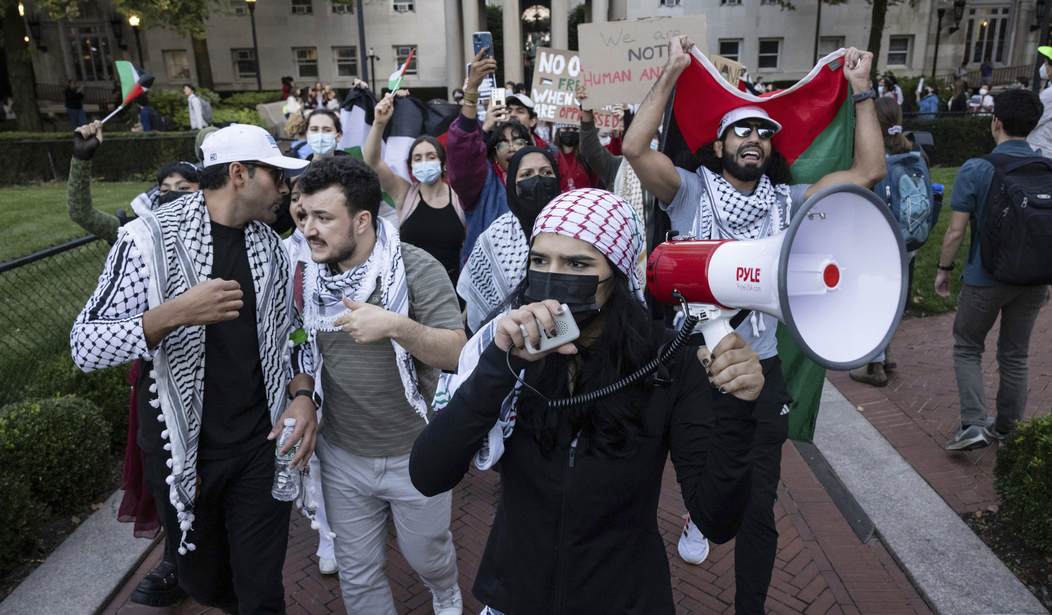It appears at least some universities aren’t putting up with the pro-Hamas crowd’s antics. Ever since the current war began after Hamas attacked Israel on October 7, members of Students for Justice in Palestine (SJP) and Jewish Voice for Peace (JVP) have been causing trouble and engaging in rowdy demonstrations on college campuses across the country.
In several cases, members of these groups have engaged in violent and threatening behavior as they advocate in favor of Hamas and the Palestinians. However, Columbia University is not putting up with it any longer. On Friday, the Chair of the Special Committee on Campus Safety, Gerald Rosberg put out a statement announcing that the university was suspending SJP and JVP for continually violating campus policies.
Columbia University is suspending Students for Justice in Palestine (SJP) and Jewish Voice for Peace (JVP) as official student groups through the end of the fall term. This decision was made after the two groups repeatedly violated University policies related to holding campus events, culminating in an unauthorized event Thursday afternoon that proceeded despite warnings and included threatening rhetoric and intimidation.
Suspension means the two groups will not be eligible to hold events on campus or receive University funding. Lifting the suspension will be contingent on the two groups demonstrating a commitment to compliance with University policies and engaging in consultations at a group leadership level with University officials.
In states like Florida and others, colleges have shut down their SJP and JVP chapters for engaging in violent behavior and openly supporting a terrorist organization.
SJP, whose national umbrella celebrated Hamas’ Oct. 7 attack on Israel, has been banned at Florida’s public universities as well as Brandeis University. This appears to be the first time a university has suspended JVP, a Jewish anti-Zionist group.
At Columbia, the two groups have held a series of protests and other actions calling for a ceasefire in Israel’s war against Hamas in Gaza, and accusing Israel of “genocide.” Columbia has been a hotspot for campus activism surrounding the conflict, and an Israeli student was assaulted there in what police called a hate crime. Supporters of Israel have criticized the school for what they call a tepid response to the anti-Israel activism, and late last month, Jewish billionaire Henry Swieca quit the board of Columbia Business School, saying that the campus is “unsafe” for Jews.
The suspensions of these groups follows a broader context in which national Jewish organizations, campus groups, and state legislators have called on universities to withdraw recognition and funding for SJP after its members celebrated Hamas’ initial attack on Israel, which killed 1,400 people.
Those on the anti-Israel side might argue that taking action against these groups violates their First Amendment right to freedom of expression. However, this has nothing to do with free speech. The issue centers around the group harassing Jewish students, inciting and engaging in violence, flaunting university policies, and publicly supporting a terrorist organization that has already killed hundreds of civilians.
It is one thing to be critical of Israel’s government. It is quite another to use violence, threats, and other coercive means to push a virulently antisemitic agenda on university campuses and elsewhere.














Join the conversation as a VIP Member